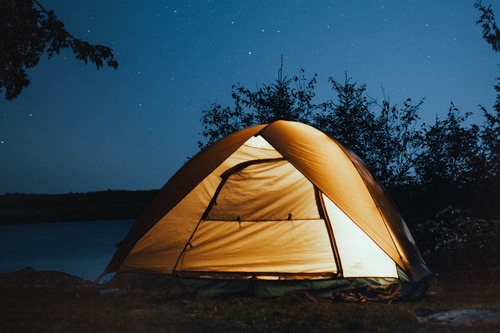
As holiday travel restrictions continue, and more and more people are embarking on “stay-cations”, there has been an increased interest in wild camping in Scotland.
Wild camping is legal almost everywhere in Scotland. Scotland has what is known as ‘right-to-roam’ laws which allow people to walk, hike, camp and swim in nature without (too much) restriction. However, there are limits to these rights; for example, you cannot just camp in someone’s garden, a golf course, or a school football pitch. If you have identified a spot you think might be good for camping, check whether or not it is restricted.
Similarly, while wild camping is allowed, you must still follow general guidelines and be respectful of the area, wildlife and other campers.
Are there any rules for wild camping?
If you are camping, whether it is legal, you have sought permission from the landowner or otherwise, you should make every attempt to be as respectful as you can and leave no trace when you leave. The Countryside Code sets out some clear principles for wild camping, which you should adhere to, regardless of where you are camping in the UK.
Leave no trace
Don’t leave behind rubbish or damage to the area and try not to disturb any wildlife. This principle is particularly crucial if you are camping in protected landscapes or national parks.
Don’t light fires
While the roaring campfire may seem appealing, you should not light any fires if you are wild camping. Instead, you should use camping stoves and portable barbeques and be careful not to scorch any grass. You should obey this rule even where there is evidence of previous fires.
Don’t be an ‘eyesore’
When people are walking in nature, they want to enjoy the scenery and landscape as much as possible, so try to keep your camping area to a minimum, don’t camp in large groups and don’t take over big areas of natural beauty.
Be respectful with personal waste
Of course, you will need to go to the toilet when camping in nature. However, you should ensure you go far away from any natural streams and bury anything you might leave behind. Dispose of feminine hygiene products as you would rubbish as burying them may attract and be dangerous to wildlife.
Responsible wild camping is generally about respect for nature and your surroundings; keep this in mind at all times.














